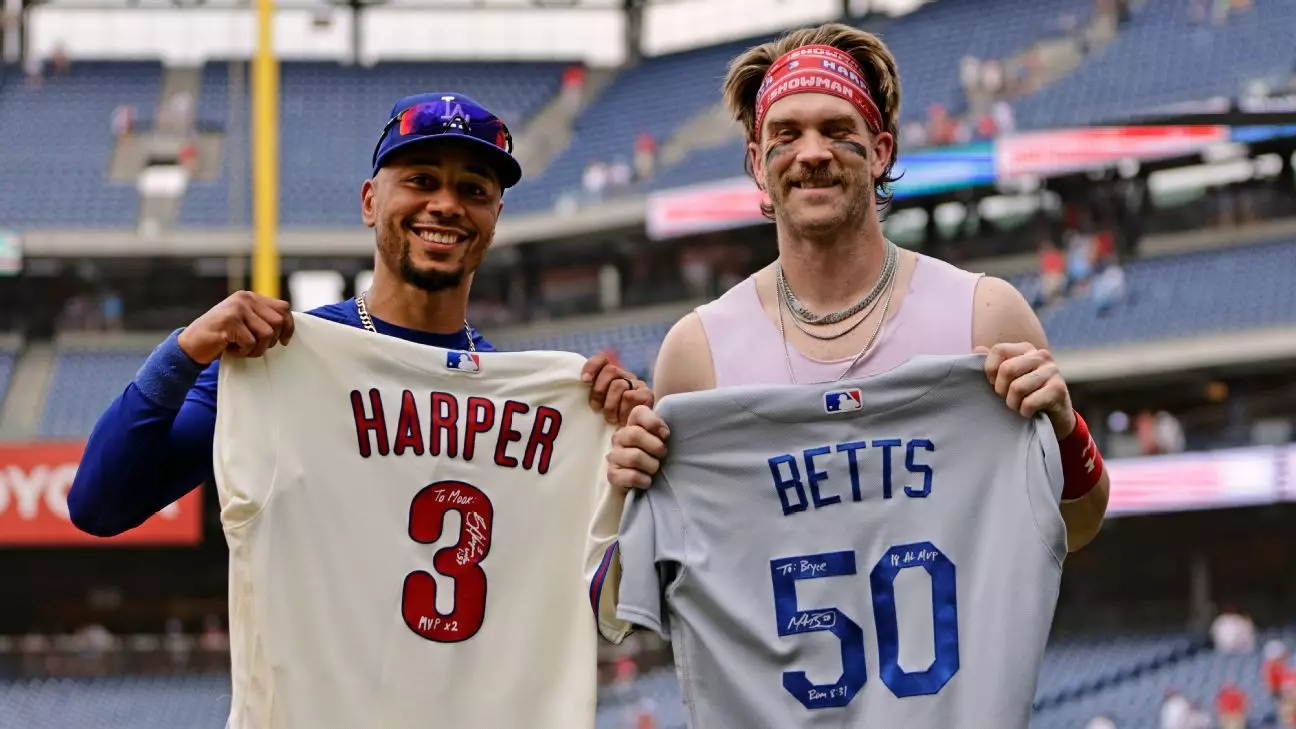In a captivating landscape where sports and economics intertwine, Major League Baseball (MLB) finds itself amidst a shift that prioritizes financial prowess over traditional competitive balance. As franchises opt for extravagant payrolls that often exceed $300 million, the game’s competitive nature draws scrutiny from both fans and players. At the center of this financial frenzy stands the notable Los Angeles Dodgers, who have leveraged their financial capabilities to construct a powerhouse team. This year, their staggering payroll of approximately $319.5 million has reignited debates surrounding the long-standing grievances about salary caps and equitable competition within the league.
The reality is that while franchises like the Dodgers operate with unfettered financial freedom, their ability to pull in top-tier talent, including superstars like Shohei Ohtani, raises questions. Ohtani’s impressive yet convoluted contract reflects just how complex the financial structures of baseball can be, showcasing both deferred payments and discount values. When the best players can be valued in such complicated ways, it becomes evident that MLB’s financial landscape is as intricate as it is competitive.
Harper’s Bold Stance
Bryce Harper, the powerhouse outfielder for the Philadelphia Phillies, has taken a strong public stance in favor of the Dodgers’ spending habits. Harper’s statement that complaints about the Dodgers’ salary practices come from “losers” highlights a fierce loyalty to competitiveness that overrides traditional concerns about fairness. In a world where many lament the perceived imbalance created by lavish spending, Harper’s perspective advocates for a view of the game driven by ambition and excellence. He seems to argue that teams should rise to the occasion rather than wallow in self-pity over the financial inequality.
This viewpoint is emblematic of a new generation of players who are stepping away from the passive acceptance of the status quo. Harper’s declaration about the Dodgers’ admirable position outlines a burgeoning culture where players embrace their new economic reality and strive to adapt within it. Rather than resisting the tidal wave of change, they are encouraged to create their own paths within the evolving landscape of baseball economics.
The Consequences of Unchecked Spending
However, this spiraling escalation of payrolls isn’t without consequences. The signs of potential imbalance are subtle, yet they lurk ominously. As MLB continues to operate without a salary cap — a reality that leaves smaller market teams at a significant disadvantage — how sustainable can this model truly be? The average MLB salary crossing the $5 million mark may seem impressive at first glance, but what does it imply for the lower-tier teams that struggle to remain competitive?
Major league teams also run the risk of alienating their fan bases by creating perceived divides between those who can afford to spend and those who cannot. Commissioner Rob Manfred’s awareness of the growing discontent among fans reflects a necessary dialogue about the competitive integrity of the league itself. Voices from within the community are growing louder, advocating for structural changes that might establish a healthier economic environment.
Looking Ahead: A New Paradigm
As we venture further into this era of financial supremacy in baseball, there are critical questions that remain unanswered: How will the league adapt to maintain a competitive balance? What measures will be enacted to address the growing inequities fostered by this chasm of financial capability?
The insatiable appetite for talent has created a situation where MLB franchises might benefit from a revised economic structure that encourages competition over opulence. A proposal for some form of salary cap or luxury tax reform could mitigate the growing disparity between teams with deep pockets and those without.
For players, owners, and fans alike, the aspirations of what baseball could be hinge on finding pathways toward a more egalitarian model. Navigating the complex terrain of ambition, prestige, and, ironically, fairness, might just hold the key to the sport’s long-term health and sustainability. The future of the game arguably requires not just a rethink of team economics but an entire cultural shift that prioritizes competition as the ultimate goal over mere financial gain.

